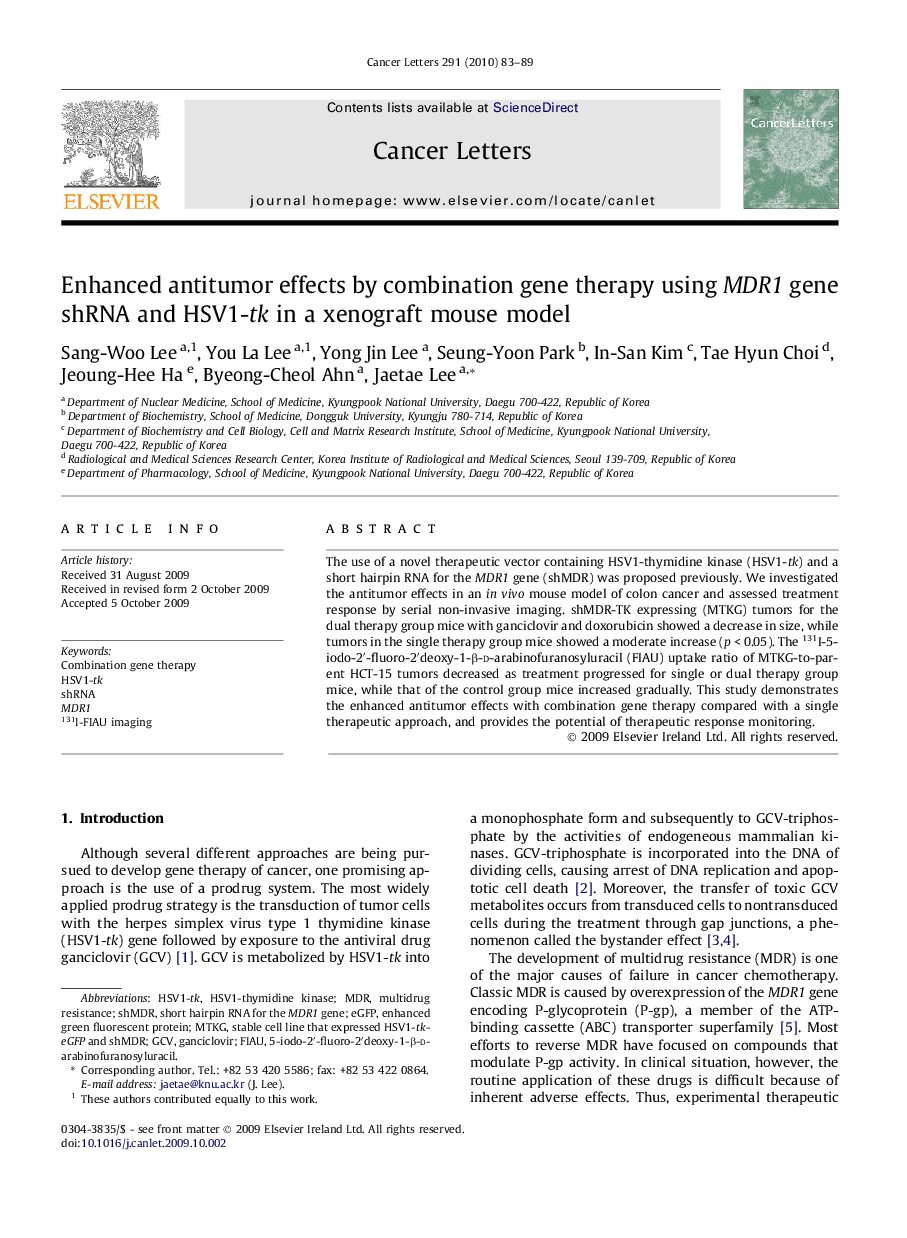| Article ID | Journal | Published Year | Pages | File Type |
|---|---|---|---|---|
| 2114036 | Cancer Letters | 2010 | 7 Pages |
The use of a novel therapeutic vector containing HSV1-thymidine kinase (HSV1-tk) and a short hairpin RNA for the MDR1 gene (shMDR) was proposed previously. We investigated the antitumor effects in an in vivo mouse model of colon cancer and assessed treatment response by serial non-invasive imaging. shMDR-TK expressing (MTKG) tumors for the dual therapy group mice with ganciclovir and doxorubicin showed a decrease in size, while tumors in the single therapy group mice showed a moderate increase (p < 0.05). The 131I-5-iodo-2′-fluoro-2′deoxy-1-β-d-arabinofuranosyluracil (FIAU) uptake ratio of MTKG-to-parent HCT-15 tumors decreased as treatment progressed for single or dual therapy group mice, while that of the control group mice increased gradually. This study demonstrates the enhanced antitumor effects with combination gene therapy compared with a single therapeutic approach, and provides the potential of therapeutic response monitoring.
